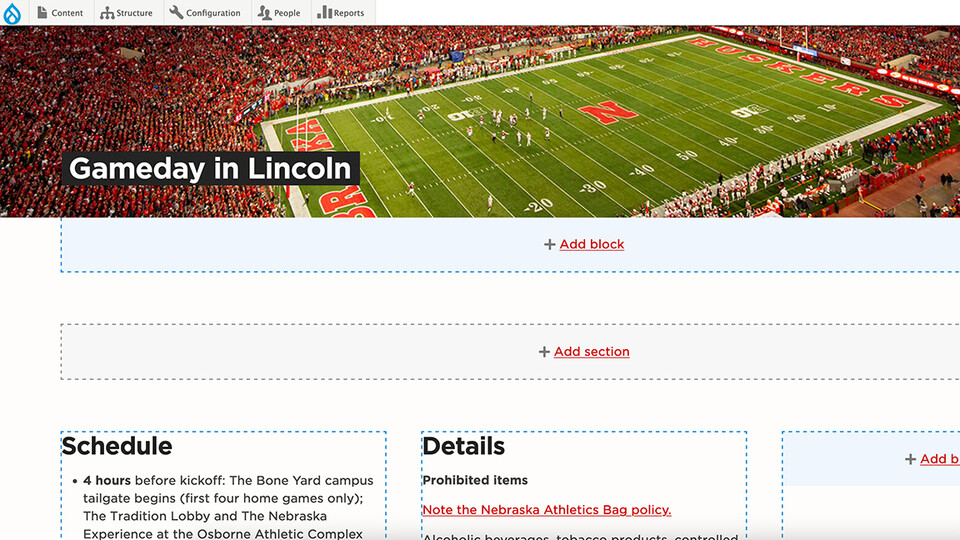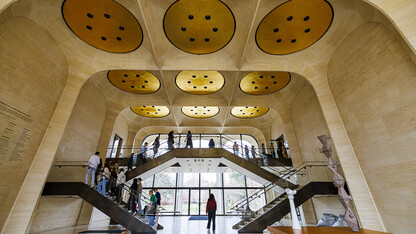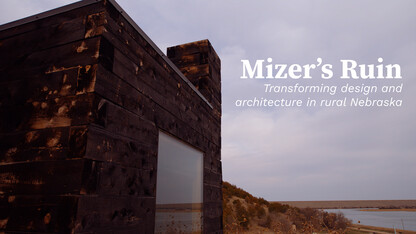· 2 min read
University launches web upgrade to Drupal 10

An upgrade to the University of Nebraska–Lincoln’s web content management system will bring unprecedented ease of use to the process of building pages and sites in the unl.edu domain.
Since 2011, the university has used the free open source software Drupal, supported by contributors from across higher education and industry, as the basis for web content management. Drupal was chosen through a comparative analysis process led by Information Technology Services.
Since entering the Big Ten as the only institution to base its web effort around Drupal, Nebraska has seen the software become the default choice in higher ed; today eight of the 14 Big Ten institutions base their web efforts around Drupal.
UNL’s web effort is led by University Communication and Marketing’s Digital Experience Group and the UNL Web Developer Network and its Shared Governance Board. The university’s web content management system is maintained by University Communication and Marketing with support from Information Technology Services.
Low code/No code
The upgrade to Drupal 10 will take place over the next 18 months.
The new system features a powerful, easy to use graphical user interface for most web authoring tasks. Site development will require little to no specialized knowledge of the underlying HTML, JavaScript and Cascading Style Sheets code that makes up a webpage.
The Digital Experience Group and the Web Developer Network have launched a closed beta test of the new platform. It will become generally available, and the default system for new website production, in the second week of June.
The University of Nebraska–Lincoln has long been a leader in higher ed web development, with several notable firsts among Research One universities — first with a domain-wide framework, first with responsive design, and first with dark mode. And, the university has consistently finished in the top decile of rankings for web accessibility.
The transition to Drupal 10 and the next-gen CMS will allow the university to continue to improve im web accessibility, as well as in the area of performance (measured by how quickly a typical web page loads).
Additional information and updates are available on the Web Developer Network website.







